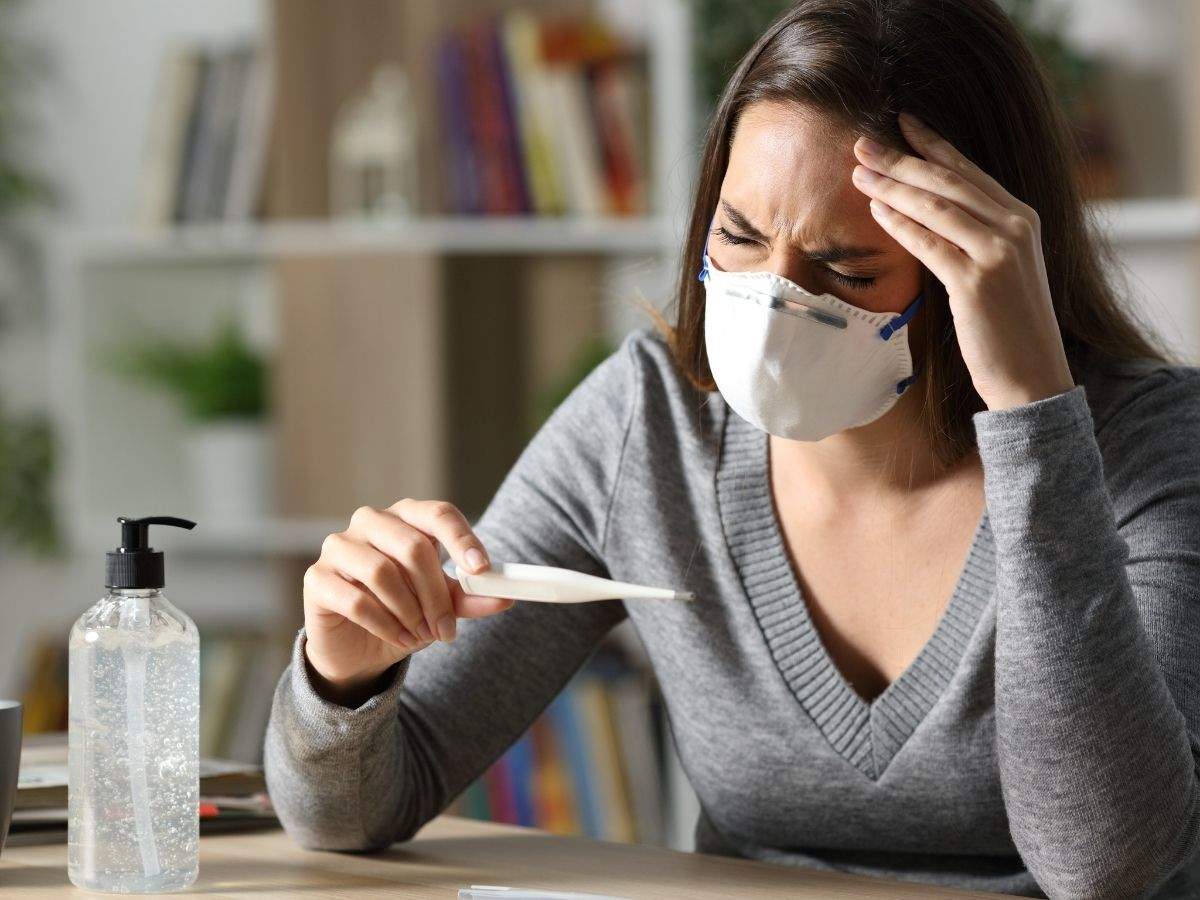While the second wave caused widespread devastation, there was also a rise in the number of people who got reinfected or contracted COVID-19 despite getting vaccinated. Many amongst them were the ones who had been partially vaccinated or had received both doses of the vaccine.
ALSO READ: What happens if you get sick after being fully vaccinated from COVID-19? Do you need testing
Scientifically, these are termed to be ‘breakthrough’ cases of infection. While the chances of catching COVID-19, even after an individual has been fully vaccinated remain on the lower side, yet, the emergence of deadlier variants of concern, such as the Delta variant has given people more reasons to worry. It is speculated that the Delta variant may be able to surpass vaccine-generated antibodies, and thus, compromise immunity.
readmore
02/6What raises the risk of contracting COVID-19 after being vaccinated?
Since what we have with us are experimental COVID-19 vaccines, it should be remembered that they are still subject to some level of scrutiny and research. The vaccines we have also majorly work to mitigate transmission and severity risk with the virus, which makes people still susceptible to catching the infection, be it mild or moderate.
The risk of reinfection, and contracting the infection also doubles up for those who have frail immunity, suffering from health conditions that make the vaccine less efficient.
ALSO READ: Health conditions which compromise your COVID-19 vaccine immunity
At the same time, it’s also important to remember that the infection risk minimizes only when an individual has received both doses of the vaccine and immunity has built up. Apart from this, there are also several mistakes a fully vaccinated individual must avoid to avoid the risk of contracting the infection. We tell you about a few of them:
readmore
03/6Not wearing a mask or maintaining distance
With the mutant virus still in full force, the pandemic is nowhere near its end. Therefore, following basic preventive measures, such as masks and following social distancing are still very much required. Getting the vaccine doesn’t guarantee you full protection but only a preventive method to lower your chances of infection. Since community-wide immunization will take time to get through, it wouldn’t be the wisest idea to take your masks off yet. If you are in a public place with people around, consider keeping the masks still on.
While masks have been proven to be much effective clinically, experts now actively recommend people to double masks (i.e. layer a surgical mask over a cloth mask) for additional protection and lessen infection risk.
Following COVID appropriate measures, including social distancing and handwashing would also still be needed, till the time we do not get close to community-level transmission.
readmore
04/6If you are immunocompromised
Vaccines offer a considerable level of protection when you have a healthy immune system. However, some evidence available has pointed out that the currently approved vaccines may not be just as effective or immuno-potent for someone with poor immunity, or frail health. Particularly, there are also some health conditions, including cancer and autoimmune conditions which could weaken vaccine efficacy rates, and offer lesser protection. Immunocompromised people should continue to practice added levels of precautions, limit their activities if they can since they have a high risk level for COVID infection and severity.
Experts are currently also researching the need for booster or additional doses, which could offer protection for immunocompromised people, or those with specific comorbidities.
readmore
05/6Taking risks with gatherings
While the second wave is finally ebbing after weeks of destruction, restrictions have consequently eased up in states across the country. However, the virus is still active and there are also reports of an upcoming third wave and rising cases pertaining to the Delta plus variant. Hence, complacencies of any kind can cost highly, if one is not careful and put them at the risk of contracting coronavirus despite being vaccinated.
If you have been vaccinated, consider the demographics of the event, or the place you visit before making a decision. As per expert guidance, outdoor gatherings are still safer than indoor venues with less ventilation. Smaller gatherings, more so, being around people who are vaccinated is encouraging.
Right now, travelling is also something that may need to be rethought of, especially internationally. While India is on the brink of recovery from the virus, the Delta variant is now fast spreading to countries across the world and may spike cases. Hence, precautionary travel and practising safe measures are crucial.
Avoid travelling or visiting high-risk places, or containment zones with a history of spikes. If you must, quarantine, limit your movement in safe circles and do not take any measures lightly.
readmore
06/6Age and gender
Apart from the above-listed factors, there are also certain factors, apart from one’s health which puts one at risk of post-vaccination illness. Waning or poor immunity being the number one responsible factor, certain studies have also indicated that women and senior citizens (those above the age of 55) face the highest dangers of illness. Uncontrolled, newer comorbidities, left unchecked can also cause damage so while you depend on the vaccine to do its job, also take care of your health and ensure you are managing your lifestyle well.
readmore
read the full story about COVID: Avoid these post-vaccination mistakes
#theheadlines #breakingnews #headlinenews #newstoday #latestnews #aajtak #ndtv #timesofindia #indiannews




